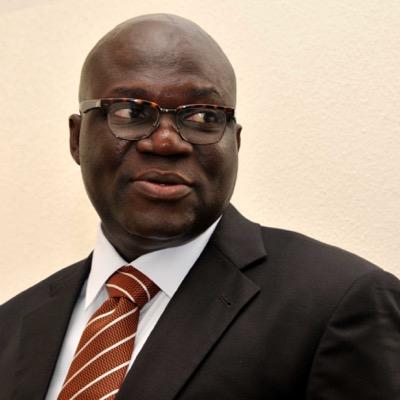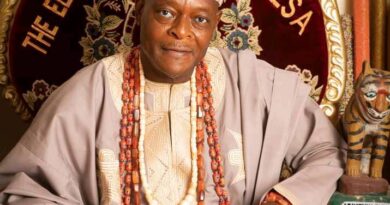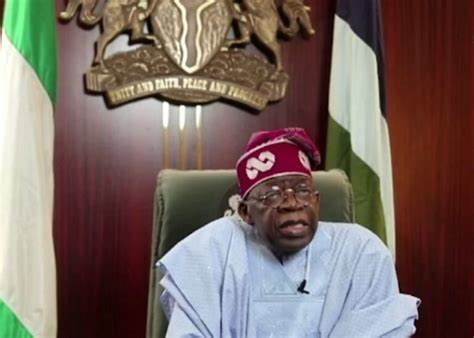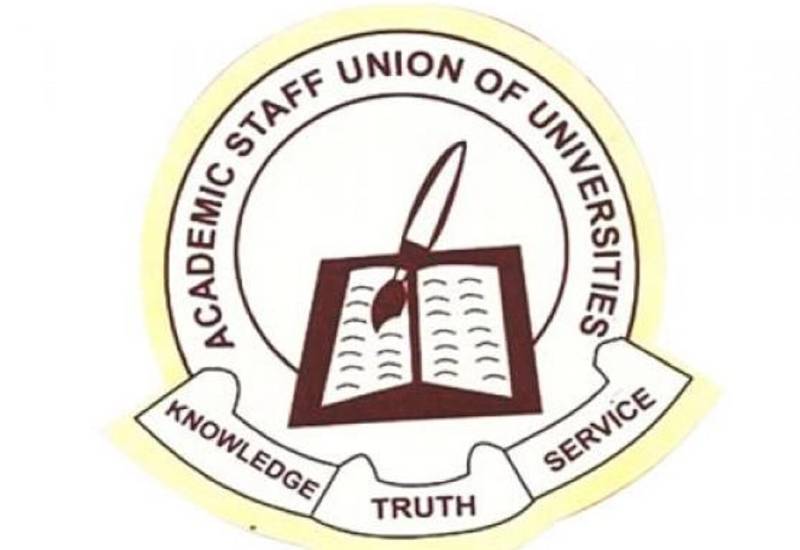Echoes From Party Primaries, By Reuben Abati
Nigeria’s 18 registered political parties have been busy, in recent times, with their primaries, in line with the schedule of activities approved by the Independent National Electoral Commission (INEC), the regulatory and oversight body in charge of general elections in the country. The Commission had set a deadline of June 3 for the completion of all party primaries. This was so until May 27, when INEC announced a six-day extension of the deadline, a development which in no way violates any law, but which nonetheless raised questions of bias and collusion between INEC and the ruling All Progressives Congress Party (APC). The matter is as follows: In the first week of May, the Inter-Party Advisory Council (IPAC), the umbrella body for all the 18 registered parties had pleaded with INEC to extend the deadline for primaries and the submission of names of elected candidates by another 30 or 67 days which would then place the deadline in August, to enable the political parties tidy up their affairs.
The parties said they were facing serious constraints. INEC refused. Its excuse was that any extension at all would disrupt the schedule of activities and that the electoral process being time-sensitive was not something the Commission or anyone could toy with. Political parties were further admonished to develop a culture of discipline and respect for rules. Other political parties began the rush to meet the stated deadline. One party, the ruling party was the most laggard of all. It kept changing and adjusting its plans, programmes and activities. As of Thursday, May 26, the party had conducted only its primaries into the House of Representatives, the Houses of Assembly and Gubernatorial positions. It was yet to conduct Senatorial primaries and the screening of the remaining 23 Presidential aspirants that bought its most expensive nomination and declaration of interest forms for N100 million. Some of the original 28 aspirants had chickened out and forfeited their deposits. Meanwhile, the party had eventually announced May 29 and 30. It clearly faced the prospect of conducting a Presidential Primary without screening the aspirants, which was unthinkable.
On Friday, INEC announced an extension of the deadline for primaries by six days relevant only to primaries that had not been conducted, and to create room for INEC to train three officials from each party, on how to load names of candidates and their affidavits on the INEC Nomination of Candidates Portal. INEC argued that it was merely using an open window of six days in its schedule of activities. INEC may not have broken any law, but those who are suspicious about its volte face have a point. The case against the Commission is circumstantial but not without value. The extension was announced on the eve of the PDP Presidential Convention after the party was no longer in a position to shift its own programme.
So, at what point did it occur to INEC that a six-day extension was possible? This was at a point when the main opposition party could no longer benefit from the extension, and its rival, the ruling APC would have the opportunity of spying on the outcome of the neighbour’s primary. To the extent that INEC is expected to be completely neutral and independent, its decision to shift the goal-post in the middle of the game was ill-advised. Its duty is to create a level playing field, not give unnecessary advantage to any party. It may insist that it remains independent but that is enough -it must be seen to be so. No one should be surprised if this shifting of the goal post, INEC affirming its position one week, and recanting another week, becomes a measurement of its performance. Going forward, INEC must eschew the tendency to vacillate or demonstrate suspicious malleability. In politics, the law is as important as other considerations ex facie curiae- of morality, confidence and trust, and the integrity of institutions. INEC is perhaps a bit too busy at the moment to pay quality attention to these fine details, busy as it is preparing for off cycle Gubernatorial elections in Ekiti State on June 18, and Osun State on July 16, but those fine details are critical and we have seen quite a few in the primaries conducted so far and their fall-outs.
Let us begin with the excessive commercialization, the “obscene monetization” of the Primaries process, to borrow a phrase from Alhaji Mohammed Hayatudeen, who had to withdraw from the PDP primary on that account. Money has always been an issue in Nigerian politics, but the obscenity of money in the 2022 party primaries is unprecedented. Civil society groups had argued for a repeal of the 2010 Electoral Act and a new Electoral Act with an intention to correct many of the direct and indirect ills in Nigeria’s electoral process. One of the lessons we have learnt in recent days in the course of the party primaries, is that not even the new law corrects the problems. The way money – not Naira, but dollars – has been flowing up and down since the party primaries commenced is frightening. Nobody has accused the lesser known political parties, 16 in total, of money politics, maybe it is the scale that is manageable, but in the two major political parties, the process has been dictated by dollar currency. It is now popular opinion that Nigeria is an emerging two-party state, and except something else happens, Nigeria is currently divided between PDP and APC. In-between, in the last two weeks, are the monetized, over-dollarized, party delegates who make a choice on behalf of party members.
Who is a party delegate? Under Section 84(8) of the Electoral Act 2022, a party delegate is someone who is duly elected, at the local government level in a democratically organized congress, and who is eligible to participate in the congresses, conventions and meetings of the party under an indirect primary system as defined in Section 84(12) of the Electoral Act, which expressly also prescribes the direct, indirect and consensus modes of holding a party primary. The exclusion of statutory delegates – persons holding public office from the Presidency, to local councilors to party structures and the failure so far of the attempt by the National Assembly to re-integrate them, grants special advantage to delegates who are beneficiaries of that omission. The President having also so far not signed the re-amended Section 84(8), and he has not broken any law in that regard, means that in the primaries that we have witnessed so far, only elected delegates have been the major players. In one or two states, direct primaries have been adopted, but for the most part, the mode of primaries has been indirect. Getting a consensus has been very difficult, except that where we have seen certain aspirants returned unopposed, without consensus, there have been problems. The adoption of an indirect mode of primary should be noted in terms of the reduction in the number of delegates. The process so far has also been swift and manageable because of the adoption of an indirect system. The inclusion of statutory delegates would have been unwieldy and problematic. It has also meant that the aspirants have had to spend less money. But even then, the quantum of election spend has never been more embarrassing.
The extent is demonstrated by some of the melodrama on display. The best job today in Nigeria is to be a delegate at a party primary, at any level. It is a limited, time-specific assignment but it is proving to be a lucrative enterprise. In the absence of statutory delegates, most delegates are at best agents of stakeholders. They are ordinary party members who have no idea what happens within the party and whose assigned task is to vote at a primary, and for them, whatever happens after the event holds no meaning. What is meaningful to them is the fact that they get paid handsomely for the job at hand. A direct primary mode as argued for in places like Ogun (APC), and Sokoto (APC), would have prevented this to some extent, but the indirect primary has meant that the ignorant and unconcerned delegate is the king in the current candidate selection process.
He or she is available for sale to every bidder. He or she can choose to collect money from every aspirant and yet choose to vote as the spirit directs. This has created problems in many cases between the sponsor and the agent. In Kaduna North Federal Constituency, for example, Adam Namadi Sambo, son of former Vice President Namadi Sambo, reportedly gave out N2 million each to 38 delegates, and yet he got only two votes and lost. He has since insisted that his money should be returned! In Ondo state, one aspirant Senator, Ondo Central (PDP), Ayo Akinyelure seeking second term, bought vehicles for party leaders. He lost. He has since asked that his cars should be returned. In Oyo State, a serving Senator who gave out money to aspirants lost woefully. He started gasping for breath. He was revived by concerned supporters who took on the task of fanning him with paper and any available object. In Delta, a House of Reps aspirant was so shocked by his loss that he fainted! There have been reports of aspirants who sold houses and other prized possessions only to lose and end up in hospital wards.
Most delegates simply obeyed the law of the stomach – man must eat, and danced to the tune of the highest bidder. Someone I know, who took part in the primaries, seeking a Senatorial position, said he had never seen anything so absurd. “It was like an auction process at Sotheby’s”, he said. “The delegates would come to you and ask you to pay a certain amount because your opponent has offered a certain amount. If you play ball, they will leave you alone for a while only to return later to say that a candidate in another party had made a higher offer, and you are expected to add more to your bid. If you again play ball, it would not be long before they would return to ask for more money.” My friend said that at some point, he had to give up. He had not seen anything more bizarre. The delegates were not even asking for inducement in Naira, they preferred US dollars! He concluded that the average delegate was the problem. He or she would have to be transported to the venue of the primary, housed, fed, and paid. The more delegates you could bribe, the better your chances. No wonder there were very loud quarrels over delegates lists in Ogun, Lagos, Rivers and Ebonyi! However, many aspirants lost their deposits because the delegates got better offers. In Nigerian politics, things get worse, always.
It has been recommended that all the delegates who took part in the current primary process should be probed. They have made too much money and are beginning to misbehave, eyeing other people’s women, and disturbing neighbourhoods; some have even bought new cars, and thrown celebratory parties. Their bank accounts should be scrutinized. The aspirants should be probed too. On Saturday, May 28, officials of the Economic and Financial Crimes Commission (EFCC) stormed the MKO Abiola Velodrome – venue of the PDP Presidential Convention in search of suspicious distribution of money to induce delegates. Their velvet vests stood out conspicuously. Many politicians are laughing at their exhibitionism. Who catches a thief by being so physically present? And in any case, election money is not distributed in the open. It is done overnight, long before the event – in hotels, government lodges and other hidden places. What may be admitted, however, is that the presence of the EFCC at the PDP Presidential Convention has sent a strong signal that the current electoral process is corrupt. EFCC should adjust its strategy. It should follow the money electronically. It should target the aspirants before the event, and be more discreet in doing so. We may well have to get to a point whereby aspirants have to declare their assets before obtaining the declaration of interest and nomination forms, and after participating in party primaries. Nobody should also be allowed to use the electoral process for the purposes of corrupt self-enrichment, or fund-raising, simply because the law is silent in that regard. If anything has been proven, it is that the Electoral Act 2022 still needs to be reviewed. There is however no law, no matter how beautifully crafted that Nigerians cannot circumvent. A law serves its purpose only if it is enforced.
The party primaries were marred by violence in many states, including Lagos, Ogun, Taraba, and Rivers. Deaths have been reported. In Taraba (PDP), the Governor’s convoy was pelted with stones during the governorship primaries. In Ogun (PDP), and Rivers (APC), there was pandemonium and gunshots as well. In Akwa Ibom (APC), Kano (PDP), and Ogun (PDP), there were parallel primaries. In Rivers (APC), the Magnus Abe faction boycotted the primaries. In Lagos (APC), two governorship aspirants were disqualified. They have since threatened to go to court. In Delta and Sokoto, Gubernatorial aspirants – Festus Keyamo, Cairo Ojougboh in Delta and Abubakar Gada and Balarabe Salame in Sokoto also boycotted the process. In Anambra (PDP), Enugu (PDP), Ebonyi (PDP) and Abia (PDP), there have been defections (Senator Enyinanya Abaribe) and protests – (Sen. Ike Ekweremadu). Whatever anyone thought a new, updated, and improved Electoral framework would bring has been shown to be defective from the start of its implementation. The National Assembly has since regretted its amendment of Section 84 (8) of the Electoral Act, the own goal it scored against itself and traditional, statutory delegates. It is also in court over the controversial Section 84(12) of the Act. The same Governors and Godfathers that the law was meant to keep at bay are ironically the ones dominating the process. The law has not checked money politics. It has also not checked the demons of ethnicity, regional politics, primordial sentiments, godfatherism and clientelism as amply seen in the just concluded PDP Presidential primary in Abuja.
Thus, there has been no stronger case made for change and renewal in Nigeria. The entire Nigerian political class is guilty. Where is that saint, with the magic spell, that would save Nigeria? We search in vain for change and progress, especially now that politicians are even trying to create dynasties for their children from Oyo to Jigawa. And who says the chosen aspirants would be good for Nigeria?



